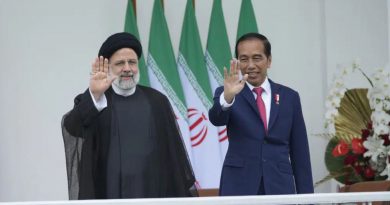MBS: Powering Saudi Arabia Beyond Oil
The reforms are part of the broader Vision 2030 initiative that is rapidly modernizing the Kingdom—socially, economically, and culturally.
A recent Wall Street Journal review of veteran journalist Karen Elliott House’s latest book, “The Man Who Would Be King,” offers a sweeping view of Saudi Arabia’s transformation under the leadership of Crown Prince Mohammed bin Salman. The book profiles the man universally known as MBS, depicting him as a transformative force reshaping the Kingdom’s destiny and influencing the emerging global order.
“MBS… will play a critical and perhaps decisive role in shaping the new regional order,” the book asserts—echoing a growing consensus among international analysts and regional observers alike.
A Kingdom Reimagined
At the heart of MBS’s long-term vision lies NEOM, a $500 billion smart city project meant to position Saudi Arabia at the cutting edge of technological and scientific advancement. “MBS hopes that his new city—known as NEOM—will make Saudi Arabia a dominant force in technological innovation,” House writes.
The reforms are part of the broader Vision 2030 initiative that is rapidly modernizing the Kingdom—socially, economically, and culturally. House highlights how “a younger generation is now free to live something much closer to what their Western peers would recognize as a normal life,” referring to greater social freedoms, entertainment, and job market access for youth and women.
In what the book describes as a high-stakes economic shift, MBS is “placing many multibillion-dollar chips on different alternatives to oil… some will hit big.” From investing in green energy and AI to developing tourism, the Crown Prince is crafting new revenue streams for a nation long reliant on fossil fuels.
One such alternative is tourism—once a niche, now a national priority. “New sources of revenue, like tourism, will have to supplement oil wealth,” the book points out. Major initiatives such as AlUla, Qiddiya, and the Red Sea Project are helping reposition the Kingdom as a global cultural and leisure destination.
A Leadership Redefined
Crown Prince Mohammed bin Salman has also redefined the public face of Saudi leadership. “No Saudi ruler before him would be seen riding a dune buggy at a tourist attraction or posing for selfies at a restaurant,” House notes—an observation that underscores MBS’s populist appeal and generational relatability.
Yet this modern image is coupled with firm authority. “The MBS she describes is a formidable character bent on imposing his will,” writes House, underlining the intensity with which the Crown Prince is driving reforms, despite resistance from entrenched interests.
The scale of Saudi Arabia’s transformation is increasingly global in impact. With the Public Investment Fund (PIF) investing in sectors across the world—from tech and AI to entertainment and infrastructure—the Kingdom’s strategic decisions are shaping not just its own future, but also that of international markets and geopolitics.
“The decisions Saudi Arabia makes about investing its massive resources will help shape the global future,” House writes.
Saudi Voices Echo the Sentiment
Reacting to the review, Mohammed Alhamed, Founder and President of Saudi Elite, stated on X (formerly Twitter): “WSJ highlights MBS’s rising global impact through Karen Elliott House’s new book: ‘The Man Who Would Be King.’”
Alhamed added, “The MBS she describes is a leader who’s disrupting norms, reshaping the Kingdom, and steering the Middle East toward a modern and competitive future.”
His remarks reflect a broader sentiment within Saudi Arabia’s emerging elite class, who view the Crown Prince’s assertive agenda as a necessary leap toward relevance and resilience in a fast-changing world.
As the international community watches closely, MBS’s bold reforms continue to challenge perceptions of the Kingdom—and chart an ambitious course toward a post-oil, globally integrated Saudi Arabia.



